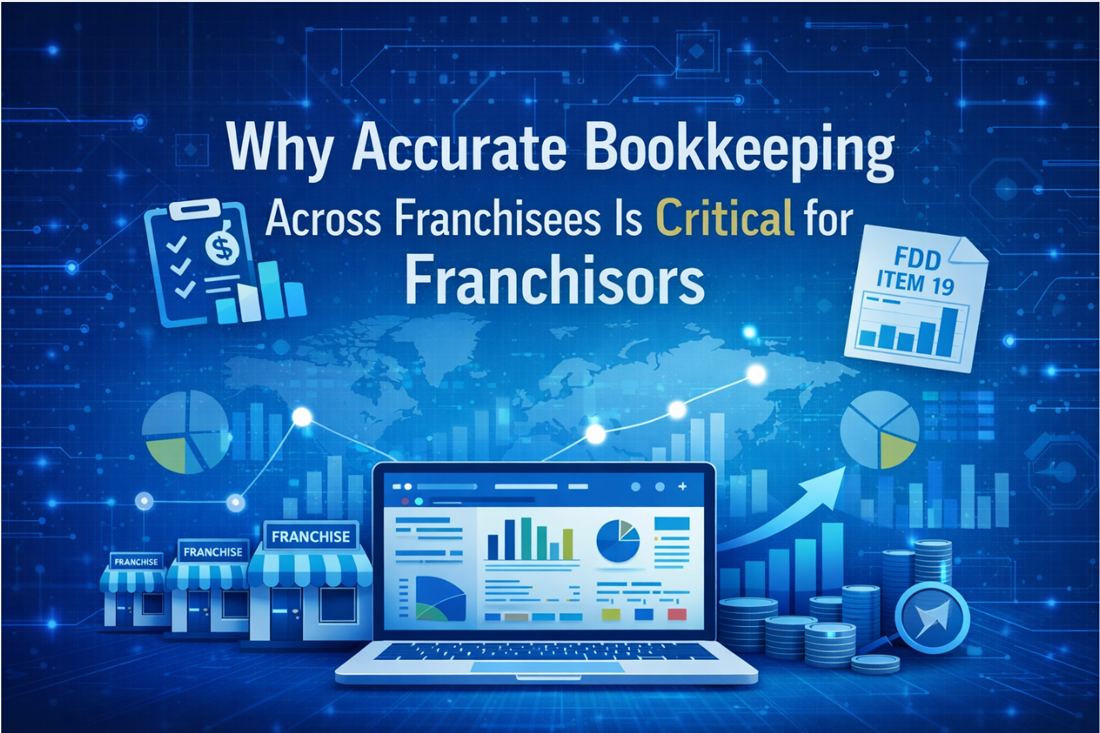As a new business owner, you have a lot to manage on your eCommerce site. From making sure that customers can easily find what they need to creating an easy path to purchasing your goods, it may leave less time to tidy up the little things in your accounting processes. However, these mistakes and misses can snowball into significant issues that could cost your eCommerce business profits and customers. To make sure your business is running efficiently from top to bottom, here are nine common eCommerce accounting mistakes that you need to avoid.
Not adjusting your inventory levels
Inventory levels play a significant role in your profit & loss, balance sheet, and cash flow forecasting. Not adjusting your inventory levels is a mistake that can carry over from one accounting cycle to the next and affect all your reports.
It may be time-consuming, but doing a physical stock take is essential to avoid this mistake. Fortunately, technology is on your side, and there are many excellent inventory control applications to help you streamline the process.
Sticking with spreadsheet or paper ledgers
While it is good to have a backup, manual entry, especially those not saved to the cloud, can cost you when it comes to tax time. As your business grows, you will need more than a digital spreadsheet to keep your accounts in order. Manually combing through all your sales and entering them is highly time-consuming, and chances are, as an eCommerce business owner, it is time you do not have. Unless you are meticulously keeping up with sales tax and the like, you may end up costing yourself more than you make.
If you haven’t already, it is time to upgrade to accounting software like Xero for eCommerce or QuickBooks for eCommerce. Both of these accounting softwares can sync with your website, do a lot of the grunt work for you, and help you avoid this eCommerce accounting mistake.
Still, you will need to have an eye on your accounts to make sure everything is accurate. xendoo’s eCommerce bookkeeping service can help ensure your books are up to date and accurate, giving you more time to focus on your business instead of your books
Mixing business accounts with your personal accounts
While it may seem convenient to use your personal accounts for business-related purchases, mixing the two can create more problems down the line than it solves. Maintaining separate business and personal accounts is the best practice.
You can take advantage of several tax benefits with a business account. It allows you to keep the proper line of sight over business income and expenses while avoiding accounting nightmares and potential liability issues if you get audited.
Not monitoring your cash flow
You may be seeing how much money your eCommerce business is generating, but are you keeping track of how much you are spending? Account reconciliation compares your internal financial records against monthly statements from external sources such as banks, credit cards, or other financial institutions, to ensure they match up.
Knowing how to reconcile your accounts is essential for the financial health of your eCommerce business. You need to reconcile your accounts to provide a clear picture of how much cash flow you have to reinvest or to pay yourself. If not, making this eCommerce accounting mistake could have you missing out on new investment opportunities, or worse, realize that you don’t have enough money to run your business. If it all sounds a little complicated, then xendoo can help you get a clear picture of your financials and the overall health of your business.
No accounting for fees
Many sales channels have different fees, and if you are selling through multiple channels like Amazon, Etsy, eBay, etc., you probably are starting to lose track of which channel charges what. If you aren’t keeping track of all these different channels and adjusting your pricing for each, you may be losing more money than you make. Accounting software can help you manage the multiple-fee structures for each channel. An accountant can help you avoid this eCommerce accounting mistake and figure out what you need to charge to make a profit for every order and which channels you should prioritize.
Not keeping track of your overhead expenses
We mentioned the importance of tracking your inventory, but you also need to keep track of all the overhead expenses like advertising, shipping, website domain licensing, etc. All these monthly charges can add up fast. If you aren’t tracking your overhead expenses and comparing them to ensure they are not growing at a different rate than your sales, your eCommerce business may be without valuable resources to keep it running. Every day you can’t make a sale, you don’t make a profit, and worse, you may lose potential and existing customers if they go to our website and it isn’t there.
Not choosing the right business entity type
Picking a legal entity may not be as fun as naming your eCommerce business, but you must try to get it right the first time. Every business entity comes with its own tax benefits, and misclassifying your eCommerce business means you could be missing ways to maximize IRS tax savings. Plus, misclassifying your business is one eCommerce accounting mistake that could lead to compliance issues that can cost you.
An accountant can help you choose which business entity is the most beneficial. And you’re just starting an eCommerce business, an accountant, like the ones at xendoo, can help you switch to a business entity that provides you with the most tax breaks.
Not making time to focus on your accounting
Accounting and bookkeeping are huge time commitments, but putting them off is one of the worst eCommerce accounting mistakes you can make. For all the reasons mentioned above, you need to take the time to follow these eCommerce bookkeeping basics, so your financial records are in order.
If you’ve been avoiding your books, it’s not too late. xendoo provides catch-up bookkeeping for eCommerce businesses to get you on the right track and keep you from making any more eCommerce accounting mistakes.
At xendoo, we know that eCommerce business owners have too much to do and not enough time to do it. But even the smallest eCommerce accounting mistakes can lead to financial repercussions down the line. If you don’t have the time to dig into your books, then let an outsourced bookkeeping and accounting service like xendoo do it for you. xendoo has a flat monthly fee and specializes in working with eCommerce businesses, so we have seen it all. Contact us today to learn how we can help get your books back in order.
As a new business owner, you have a lot to manage on your eCommerce site. From making sure that customers can easily find what they need to creating an easy path to purchasing your goods, it may leave less time to tidy up the little things in your accounting processes. However, these mistakes and misses can snowball into significant issues that could cost your eCommerce business profits and customers. To make sure your business is running efficiently from top to bottom, here are nine common eCommerce accounting mistakes that you need to avoid.
[av_sidebar widget_area=’Blog Post Disclaimer’ av_uid=’av-om2w’]











